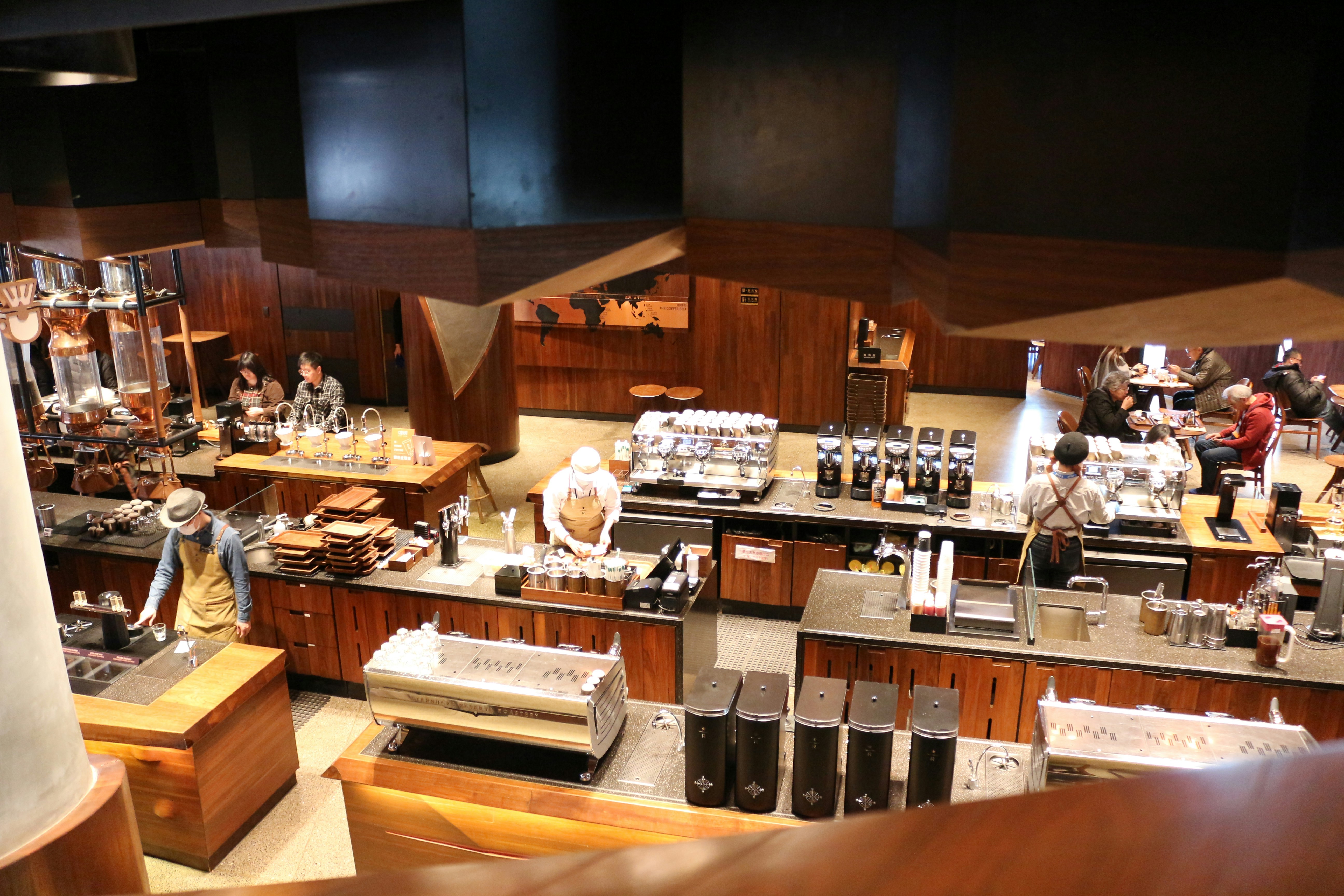🛡 Powerful Protection Spells That Shield From Harm
Safeguard yourself, loved ones, and your home from negative energy and spiritual threats with effective, trusted protection spells.
Introduction to ‘Third Places’
The term ‘third places’ refers to informal gathering places that exist outside the home, referred to as the first place, and the workplace, the second place. Coined by sociologist Ray Oldenburg in the 1980s, ‘third places’ encompass environments such as coffee shops, libraries, parks, and bars, where individuals can come together to engage in social activities and build connections. These spaces are vital for community health and cohesion, offering venues for casual interactions, friendships, and a sense of belonging.
‘Third places’ serve as accessible environments for diverse groups of people to interact without the constraints typically found in public or work settings. They allow individuals to express themselves freely and foster a sense of community. The importance of these spaces is further amplified in an increasingly digital world, where face-to-face interactions may be overshadowed by online communication. As people seek greater connection, they are rediscovering the inherent value of physical meeting places.
<pfurthermore, ‘third=”” a=”” across=”” allowing=”” also=”” ambiance=”” among=”” an=”” and=”” are=”” atmosphere=”” attendees=”” be=”” beneficial.=”” businesses,=”” but=”” cafés,=”” can=”” coffee=”” comfortable=”” community.=”” conducive=”” contributes=”” creating=”” cultivate=”” customers.<pultimately, ‘third=”” a=”” and=”” appreciate=”” as=”” becomes=”” better=”” by=”” can=”” collective=”” connection.=”” contemporary=”” cultural=”” enhancing=”” enrich=”” essential.=”” for=”” genuine=”” highlighting=”” human=”” importance=”” in=”” increasingly=”” informal=”” interest=”” lives,=”” networks=”” of=”” our=”” p=”” places’=”” progresses,=”” resurgence=”” role=”” significance=”” signifies=”” social=”” society=”” society.
The Evolution of Coffee Shops
Coffee shops have a rich history, serving as vital communal spaces that foster connection and conversation. Their origins can be traced back to the Middle East in the 15th century, where the first known coffeehouses, or qahveh khaneh, emerged. These establishments were pivotal to social interactions, providing a venue for individuals to gather, share ideas, and engage in discussions about various topics ranging from politics to literature. Over the centuries, coffee shops evolved across different cultures, adapting to the social and economic landscapes of their time.
By the 17th century, coffeehouses had made their way to Europe, becoming centers of sociability and intellectual exchange. In cities such as London and Paris, these establishments served as hubs for merchants, artists, and thinkers, contributing significantly to the Enlightenment movement. The atmosphere of coffee shops during this period was characterized by lively discussions and the cultivation of friendships, further establishing their role as essential third places outside of home and work.
The 20th century saw a transition in the concept of coffee shops prompted by the rise of globalization and changing consumer habits. The emergence of specialty coffee roasters and cafe chains brought forth a new model. Modern-day coffee shops cater to diverse clientele, serving not just coffee but also a range of food and beverages in a comfortable setting. With the implementation of free Wi-Fi and cozy seating arrangements, these establishments evolved into informal meeting hubs and workspaces, appealing to students, remote workers, and professionals alike.
The role of coffee shops continues to evolve, reflecting societal changes and preferences. They have become a cultural phenomenon where individuals seek community, productivity, and creativity. As we continue to navigate contemporary life, coffee shops remain steadfast as communal gathering places, adapting their environments to meet the demands of modern society.
The Pandemic Effect: A Shift in Social Spaces
The COVID-19 pandemic has had a profound impact on social behaviors, leading to a dramatic shift in how individuals engage with one another. Lockdowns, social distancing measures, and the general uncertainty surrounding public health created an environment where in-person interactions became limited. As a result, many people began to feel isolated and yearned for social connections. With the easing of restrictions, there is a noticeable resurgence in the desire for direct human interaction, further reinforced by the need to rebuild connections that may have been severed during the pandemic.
During the height of the pandemic, coffee shops transformed into makeshift community hubs and safe spaces where individuals could gather with a sense of normalcy while observing health guidelines. These establishments, traditionally seen as casual meeting places, adapted to the new environment by enhancing outdoor seating options, enforcing capacity limits, and implementing rigorous sanitation measures. This responsiveness captured the attention of the public, as people sought venues that provided comfort and a sense of community amidst uncertainty.
Furthermore, coffee shops began to represent more than just a location to consume beverages; they evolved into symbols of resilience and adaptability. Individuals rediscovered the joy of gathering in these spaces, often finding comfort in shared experiences and discussions over a cup of coffee. This phenomenon highlights a renewed appreciation for in-person interactions that typically take place in community-oriented locations.
💰 Powerful Spells for Wealth & Prosperity
Attract money, success, and financial abundance with real magic spells that bring results fast.
The trend of flocking to coffee shops can be seen as a reflection of a collective desire to socialize and connect again. As society continues to navigate the post-pandemic landscape, these establishments are poised to remain popular, offering not just a place to drink but a nurturing social environment where friendships can flourish and community ties can strengthen. This resurgence underscores the enduring importance of such third places in fostering human connection.
The Appeal of Coffee Shops as ‘Third Places’
Coffee shops have emerged as vital ‘third places’—locations that serve as social hubs beyond the home and workplace. This phenomenon can be attributed to several key features that these establishments offer, making them increasingly appealing to a diverse customer base. The ambiance of coffee shops is perhaps their most defining characteristic. Many coffee shops curate a warm and inviting environment, complete with comfortable seating, ambient music, and unique décor. This creates a perfect backdrop for relaxation or engagement in conversations, fostering a sense of community among patrons.
Accessibility is another significant aspect that enhances the appeal of coffee shops. Often situated in central locations, they are easy to access for people from various neighborhoods, allowing for spontaneous meet-ups or casual gatherings. Moreover, many coffee shops establish accommodating hours that cater to early risers and night owls alike, contributing to their role as informal meeting venues at all hours of the day.
Opportunities for social interaction within coffee shops cannot be overstated. These spaces promote casual conversations among friends, acquaintances, and even strangers, fostering connections that are often hard to make in a more formal setting. The shared experience of enjoying a cup of coffee or participating in events such as open mic nights encourages patrons to engage with one another, enhancing the community feel that coffee shops aim to cultivate.
When comparing local coffee shops to chain establishments, it becomes clear that local shops often provide a more personalized experience. They are frequently perceived as more welcoming and conducive to community interaction, as they tend to reflect the unique character of their neighborhoods. While chains can offer consistency and convenience, local establishments often serve as anchors for social engagement, embodying the true essence of a ‘third place’.
The Rise of Remote Work and Its Influence
The shift towards remote work has significantly transformed the landscape of traditional employment, fostering a new culture of flexibility and adaptability. As more individuals operate from home or other non-traditional environments, coffee shops have emerged as favored alternatives for many. This phenomenon has not only revived interest in these local establishments but has also catalyzed their evolution into modern ‘third places’—spaces that are neither home nor office.
One of the compelling reasons coffee shops have gained popularity among remote workers is the conducive atmosphere they offer. A change of scenery can boost creativity and productivity, as the ambient sounds, scents, and vibe create a stimulating environment. Many find that the buzz of activity and social interaction can counterbalance the potential isolation of remote work, leading to a more engaging and dynamic work experience. Furthermore, these spaces often come equipped with essential amenities such as free Wi-Fi and comfortable seating, making them ideal for extended work sessions.
Additionally, the trend towards using coffee shops as work environments highlights an increasing recognition of the importance of work-life balance. Many remote workers deliberately choose these spaces to delineate their professional and personal lives, allowing for clearer boundaries while still benefiting from a conducive working atmosphere. The ritual of heading to a coffee shop to work can create a sense of normalcy and routine, essential for maintaining mental health and well-being in a remote work setting.
As remote work continues to evolve, so too will the role of coffee shops in our daily lives. They are likely to remain central to the changing definitions of workspaces, underscoring the adaptability of human behavior in response to evolving work environments.
Community Connection Through Local Coffee Shops
Local coffee shops have emerged as vital components of community life, serving not only as places to enjoy a warm beverage but also as venues for fostering social interaction and connection among residents. These establishments have become “third places,” a space distinct from home and work where individuals can gather, converse, and develop relationships within their community. The ambiance of a local café often encourages casual exchanges, transforming strangers into acquaintances and, eventually, friends.
One of the significant ways coffee shops promote community is through organized events. Many local cafés host open mic nights, book clubs, or art showcases, providing platforms for local artists and writers to share their talents. Such initiatives not only entertain but also encourage patrons to engage with one another, thereby building a sense of camaraderie and belonging. Additionally, coffee shops frequently support local charities by hosting fundraising events or donating a portion of their proceeds. This not only helps those in need but also strengthens the bond between the business and the community it serves.
Furthermore, local coffee shops can become hubs for community discussion and activism. Many cafés provide bulletin boards that allow local organizations to post information about meetings, services, and social campaigns. By facilitating dialogue around important community issues, these cafés empower residents to take part in local governance and activism, thus enhancing civic engagement. Regular patrons often feel a stronger connection to their neighborhoods as they witness the positive impact of supporting local businesses that prioritize community well-being.
In summary, local coffee shops serve as essential gathering places that foster community connection. They cultivate an environment where individuals can engage in cultural exchange, support local initiatives, and build relationships, ultimately enriching the social fabric of the neighborhoods they inhabit.
Cultural Significance: Coffee Shops as Creative Spaces
Coffee shops have transcended their original function as mere establishments for coffee consumption, evolving into vital third places that foster creativity and innovation. These venues serve as informal gathering spots for individuals from diverse backgrounds, offering a stimulating environment that nurtures artistic expression and intellectual discourse. The casual atmosphere of a coffee shop encourages patrons to engage in conversation, share ideas, and collaborate on projects, thus acting as incubators for creative thought.
The importance of coffee shops within contemporary culture can be seen in their role as creative hubs where art, music, and literature flourish. Local artists often use these spaces to showcase their work, providing visibility and a platform for emerging talent. Regular open mic nights allow musicians and poets to perform, facilitating a vibrant exchange of artistic ideas and fostering a sense of community among attendees. By providing a forum for such expressions, coffee shops not only support local culture but also create a unique blend of commerce and creativity.
Moreover, the ambiance of a coffee shop can greatly influence creativity. Elements such as ambient music, the aroma of freshly brewed coffee, and the casual decor contribute to a welcoming environment where individuals feel inspired to think differently. This synergy of sensory experiences can lead to unexpected breakthroughs and collaborations, reinforcing the coffee shop’s status as a modern creative space. As patrons engage in lively discussions and brainstorm new concepts over steaming cups of coffee, they solidify the coffee shop’s role as an essential contributor to cultural development within the community.
Challenges Facing Coffee Shops in the Modern Age
In recent years, coffee shops have evolved into vital ‘third places’ where communities gather, socialize, and work outside the confines of home and office. However, these establishments face several challenges that threaten their viability in the current market landscape. A primary concern lies in the competition from large coffee chains. With their ability to leverage economies of scale, these corporate entities often provide lower prices, standardized offerings, and widespread availability. This dynamic makes it increasingly difficult for independent coffee shops to attract and retain patrons who may prioritize convenience and familiarity over the unique atmosphere offered by local establishments.
Moreover, the rise of food delivery services has fundamentally altered consumer behaviors, allowing customers to receive their favorite beverages and snacks without even stepping outside their homes. Platforms like Uber Eats and DoorDash have become ubiquitous for those seeking convenience, fostering a preference for effortless access over the experience of visiting a coffee shop. As local coffee operators grapple with these shifts, they must not only compete in terms of product quality and diverse offerings, but also develop strategies to maintain their relevance amidst evolving consumer preferences.
The economic pressures brought about by the recent global crises have further complicated the situation for coffee shops. Many have faced increased costs in sourcing high-quality ingredients, managing labor, and adhering to new health regulations. These financial strains can hinder small businesses’ ability to innovate or reinvest in their establishments, ultimately impacting customer experience. As these challenges mount, the sustainability of coffee shops operating as third places hinges on their ability to differentiate themselves through exceptional service, community engagement, and a unique atmosphere that continues to draw patrons away from both chains and delivery options alike.
Conclusion: The Future of Third Places
As we reflect on the evolving significance of coffee shops as third places, it becomes clear that these environments offer more than just a cup of coffee; they provide vital social interactions and community engagement. The concept of third places, which serve as informal gathering spots outside of home and work, has gained renewed relevance in recent years. Coffee shops have emerged as primary venues where individuals can cultivate relationships, brainstorm ideas, and simply enjoy a moment of respite from the hustle and bustle of daily life.
Looking ahead, the future of third places seems promising, yet dynamic. As societal norms shift, particularly in the wake of remote work trends and the continuing importance of social connection, coffee shops and similar venues will likely adapt to meet new expectations. These establishments may increasingly emphasize their role as versatile spaces, catering not only to those seeking a quiet place to work or read but also to groups wanting to collaborate or socialize. We anticipate that coffee shops will continue to innovate their offerings, incorporating technology and creating varied environments that enhance the sense of community.
Moreover, the design and atmosphere of these spaces will play a critical role in attracting diverse demographics, from freelancers seeking a productive area to families looking for a welcoming atmosphere. The integration of art, cultural events, and local partnerships may further enrich the third place experience, making coffee shops integral to the fabric of urban and suburban life.
In summary, the enduring appeal of coffee shops as third places highlights their essential role in fostering social connections. As we navigate an ever-changing landscape of social interactions and community needs, it is imperative that these venues continue to evolve and adapt, ensuring they remain relevant and cherished components of our daily experiences.





